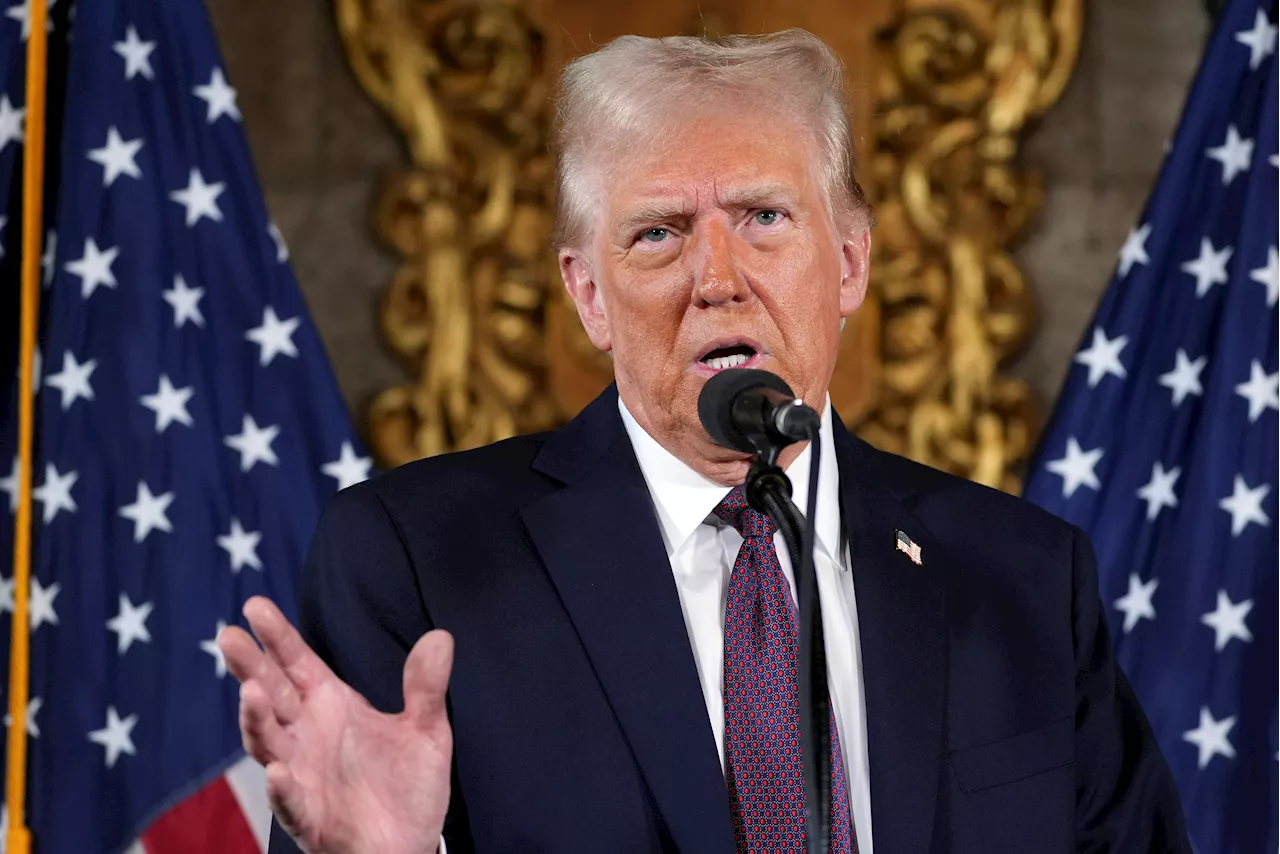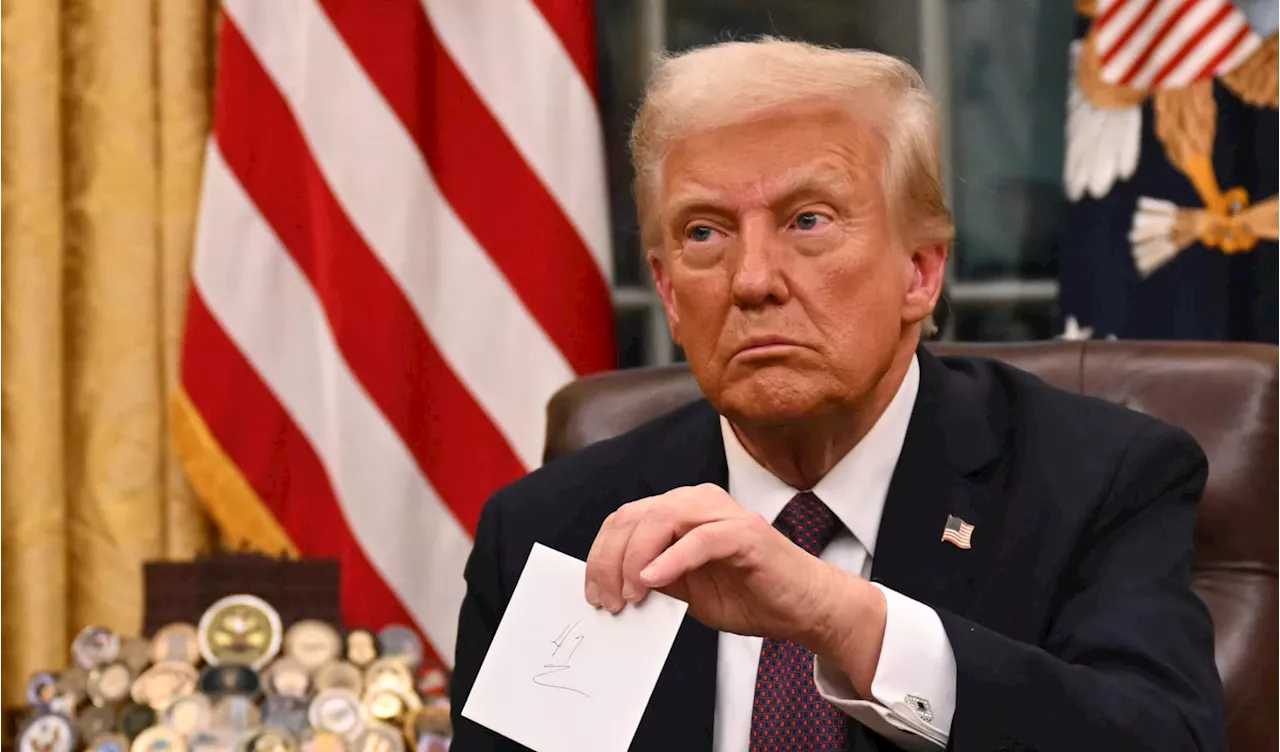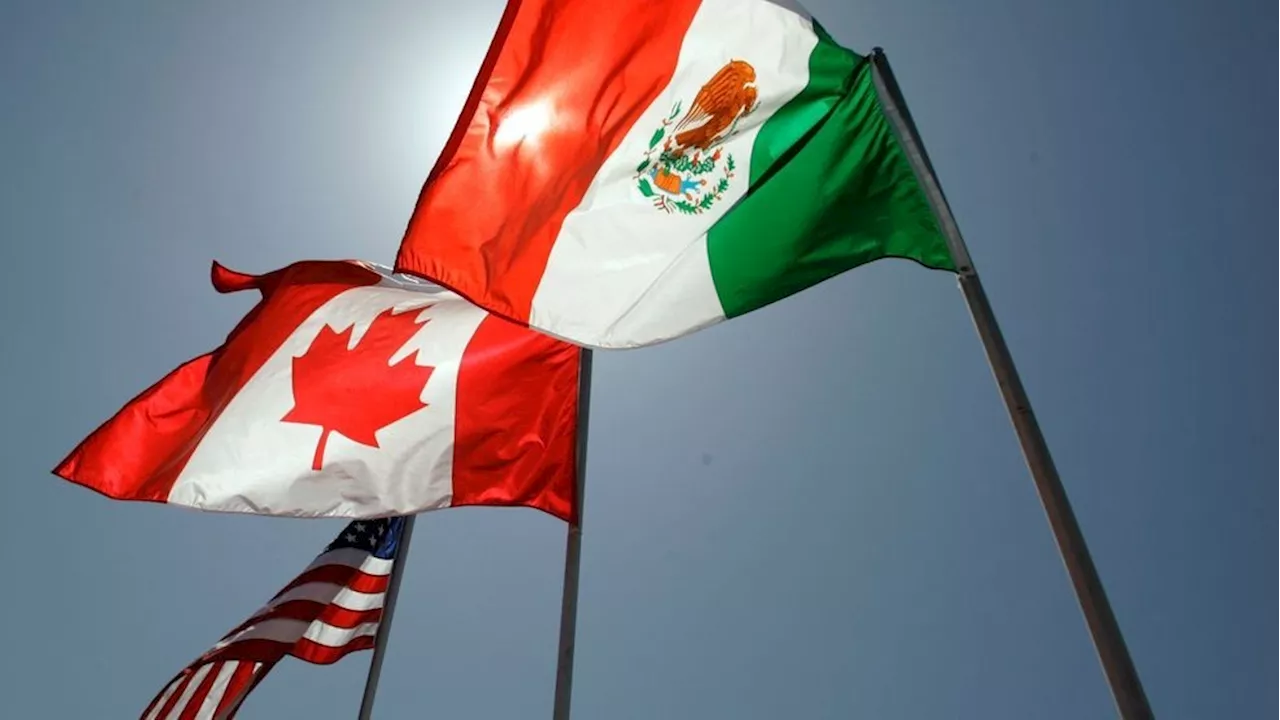President Trump's imposition of tariffs on Canada, Mexico, and China has triggered a wave of market uncertainty and global economic anxieties. While temporary agreements have been reached with Canada and Mexico to pause the tariffs for a month, tensions remain high with China.
Wall Street endured a turbulent start to the week as the Nasdaq, Dow Jones, and S&P 500 all experienced declines in value on Monday. This market apprehension stemmed from the private sector's anticipation of the economic repercussions that could arise from a potential full-blown trade war involving the United States, Canada , Mexico, and China.
President Trump, known for his keen interest in market fluctuations, was queried by reporters about the market's performance as he departed the Oval Office after signing a series of executive orders. When informed of the day's sell-off, Trump nonchalantly stated, 'I don't think about it.' The president's intention behind imposing tariffs is to hold both allies and China accountable for the influx of fentanyl and illegal immigration into the United States. However, economists cautioned that these tariffs could exacerbate inflationary pressures faced by American consumers.By 10:30 a.m., President Trump and Mexican President Claudia Sheinbaum announced a temporary truce, agreeing to suspend the tariffs for a month to facilitate negotiations. Sheinbaum expressed confidence in reaching a mutually beneficial outcome for both nations within the stipulated timeframe. As part of the agreement, Mexico pledged to deploy 10,000 troops to the U.S.-Mexico border to address the flow of fentanyl and undocumented migrants. Trump emphasized the seriousness of the commitment, stating that Mexico would be held accountable for effectively stemming the flow of these illicit substances and individuals. Following two phone conversations, President Trump and Canadian Prime Minister Justin Trudeau reached a similar agreement, pausing the tariffs for 30 days. Canada committed to implementing a series of border security measures, including the appointment of a Fentanyl Czar, the designation of cartels as terrorist organizations, 24/7 border surveillance, and the establishment of a Canada-U.S. Joint Strike Force to combat organized crime, fentanyl trafficking, and money laundering. Trudeau further announced a $200 million investment in supporting these initiatives. Despite these agreements, a 10% tariff on Chinese imports remains scheduled to take effect at 12:01 a.m. on Tuesday. Trump stated that China is expected to cease exporting fentanyl to the U.S., and if they fail to comply, the tariffs will be significantly increased. In response, China has vowed to challenge the U.S. tariffs at the World Trade Organization and implement other countermeasures, adding to the existing global market uncertainties. Jason Furman, former deputy director of the National Economic Council, pointed out the escalating oil prices as a consequence of the trade tensions, estimating an additional 80 cents per gallon at the pump. Furman warned that these tariffs would ultimately lead to increased costs for all consumers across a wide range of goods and services. Senator Mitch McConnell, former majority leader from Kentucky, expressed his disapproval of the trade war, questioning the rationale behind engaging in conflict with allies over these issues. The White House countered concerns about rising prices by citing instances of tariffs and low inflation during Trump's first term, although the current tariffs are considerably larger in scale and scope
TARIFFS TRADE WAR NAFTA CHINA MEXICO CANADA ECONOMIC IMPACT INFLATION PRESIDENT TRUMP MARKETS WORLD TRADE ORGANIZATION
United States Latest News, United States Headlines
Similar News:You can also read news stories similar to this one that we have collected from other news sources.
 Trump Threatens Tariffs on Canada, Mexico, and Plans to Rename Gulf of MexicoPresident-elect Donald Trump announced plans for 'very serious tariffs' against Canada and Mexico, citing illegal immigration and drug trafficking. He also declared his intention to rename the Gulf of Mexico to the 'Gulf of America'.
Trump Threatens Tariffs on Canada, Mexico, and Plans to Rename Gulf of MexicoPresident-elect Donald Trump announced plans for 'very serious tariffs' against Canada and Mexico, citing illegal immigration and drug trafficking. He also declared his intention to rename the Gulf of Mexico to the 'Gulf of America'.
Read more »
 Trump Threatens Tariffs on Mexico and Canada, Eyes TikTok Penalties on ChinaPresident Donald Trump announced plans to impose tariffs on Mexico and Canada as early as February, citing concerns over immigration. He also hinted at using tariffs against China to pressure them into approving a U.S. partner for TikTok. Trump aims to use tariffs to protect American workers, encourage countries to curb fentanyl trafficking, and generate revenue for the U.S. federal government.
Trump Threatens Tariffs on Mexico and Canada, Eyes TikTok Penalties on ChinaPresident Donald Trump announced plans to impose tariffs on Mexico and Canada as early as February, citing concerns over immigration. He also hinted at using tariffs against China to pressure them into approving a U.S. partner for TikTok. Trump aims to use tariffs to protect American workers, encourage countries to curb fentanyl trafficking, and generate revenue for the U.S. federal government.
Read more »
 Trump Imposes Tariffs on Canada, Mexico, and China, Sparking Inflation FearsPresident Trump's imposition of tariffs on Canada, Mexico, and China has triggered concerns about potential inflation in the United States. Economists warn that these tariffs could lead to price increases for a wide range of goods, from gasoline and cars to clothing and alcohol. The tariffs are in response to what Trump says is a failure by these nations to address the flow of fentanyl and other drugs into the U.S.
Trump Imposes Tariffs on Canada, Mexico, and China, Sparking Inflation FearsPresident Trump's imposition of tariffs on Canada, Mexico, and China has triggered concerns about potential inflation in the United States. Economists warn that these tariffs could lead to price increases for a wide range of goods, from gasoline and cars to clothing and alcohol. The tariffs are in response to what Trump says is a failure by these nations to address the flow of fentanyl and other drugs into the U.S.
Read more »
 Trump Imposes Tariffs on Canada, Mexico, and ChinaPresident Trump's tariffs on imports from Canada, Mexico, and China have sparked widespread controversy. While Trump argues that the tariffs are necessary to protect American jobs and interests, critics warn that they will harm the U.S. economy and lead to higher prices for consumers.
Trump Imposes Tariffs on Canada, Mexico, and ChinaPresident Trump's tariffs on imports from Canada, Mexico, and China have sparked widespread controversy. While Trump argues that the tariffs are necessary to protect American jobs and interests, critics warn that they will harm the U.S. economy and lead to higher prices for consumers.
Read more »
 Trump Imposes Tariffs on Mexico, Canada, and ChinaPresident Trump signed executive orders imposing tariffs on imports from Mexico, Canada, and China, citing concerns over illegal immigration and drug trafficking. The tariffs will add 25% to imports from Canada and Mexico (with a 10% rate for Canadian energy products) and 10% on Chinese imports. The move is expected to impact both businesses and consumers as these countries are major suppliers of goods to the US.
Trump Imposes Tariffs on Mexico, Canada, and ChinaPresident Trump signed executive orders imposing tariffs on imports from Mexico, Canada, and China, citing concerns over illegal immigration and drug trafficking. The tariffs will add 25% to imports from Canada and Mexico (with a 10% rate for Canadian energy products) and 10% on Chinese imports. The move is expected to impact both businesses and consumers as these countries are major suppliers of goods to the US.
Read more »
 Here are some goods in the crosshairs of Trump's tariffs on Mexico, Canada and ChinaPresident Donald Trump signed an order to put tariffs on U.S. neighbors Canada and Mexico, as well as China, starting Tuesday.
Here are some goods in the crosshairs of Trump's tariffs on Mexico, Canada and ChinaPresident Donald Trump signed an order to put tariffs on U.S. neighbors Canada and Mexico, as well as China, starting Tuesday.
Read more »
